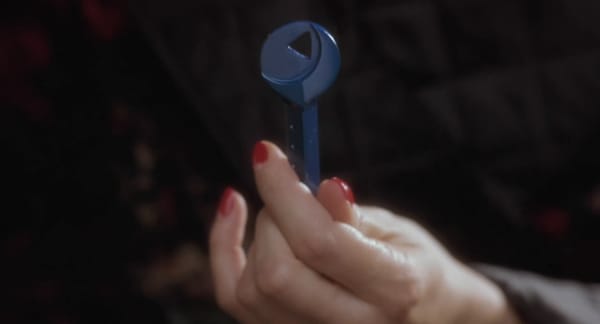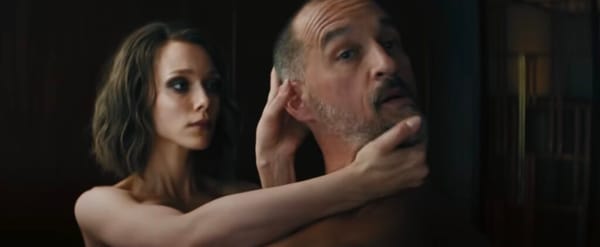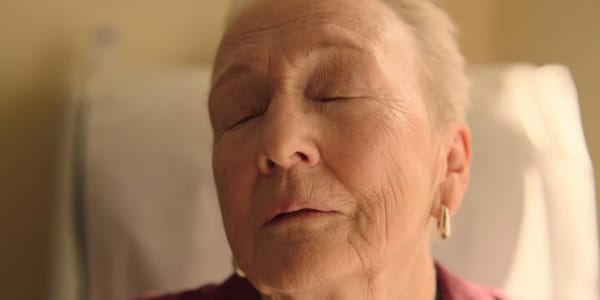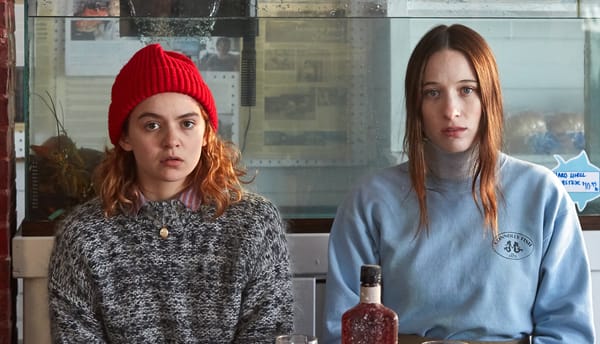New Release Friday: Dollybirds & Gospel Kings
"Last Night in Soho" and "How They Got Over"

The Nut Graf: “Last Night in Soho” (in theaters) is a time-shifting Swinging London thriller that goes from very sweet to awfully sour (**1/2 stars out of ****). The music documentary “How They Got Over: Gospel Quartets and the Road to Rock & Roll” (in theaters and virtual screenings) is a mighty cloud of joy. (***1/2 stars out of ****)

A couple of quick takes for a slow movie week.
Edgar Wright’s “Last Night in Soho” – in theaters only – is an exuberant bauble that turns sinister and then scary before wrapping things up with a far-fetched twist. Wright is a born filmmaker and a witty stylist – he sent up zombie movies with “Shaun of the Dead” (2004), cop movies with “Hot Fuzz” (2007), and heist movies with “Baby Driver” (2017) – but here he’s messing around not with a genre but a place and time: Swinging 60s London in all its fab glory. That’s great until it isn’t.
Thomasin McKenzie, the rawboned discovery of “Leave No Trace” (2018), plays Eloise, a country-mouse fashion student in modern-day London who at night dreams her way back through the decades and into the body of Sandie, a breezily confident Carnaby Street hopeful played by Anya Taylor-Joy (“The Queen’s Gambit”). Are the two women actually bonding across time? Is Eloise heading for a mental breakdown à la Catherine Deneuve in “Repulsion”? Wright keeps us guessing while gradually darkening the film’s tone as Sandie hooks up with a manager who’s more of a pimp (Matt Smith, Prince Philip from “The Crown” going over to the bad side) and Eloise fears she’s losing her sanity. “Last Night in Soho” turns rather bloody for a bit, but the larger problems are that Wright is more interested in keeping the suspense ratcheted up to 11 than in plot logic or believable behavior, and the film ends up falling apart before our eyes. (On top of that, whatever points the director’s trying to make about sisterhood or race are, to put very kindly, undeveloped.)
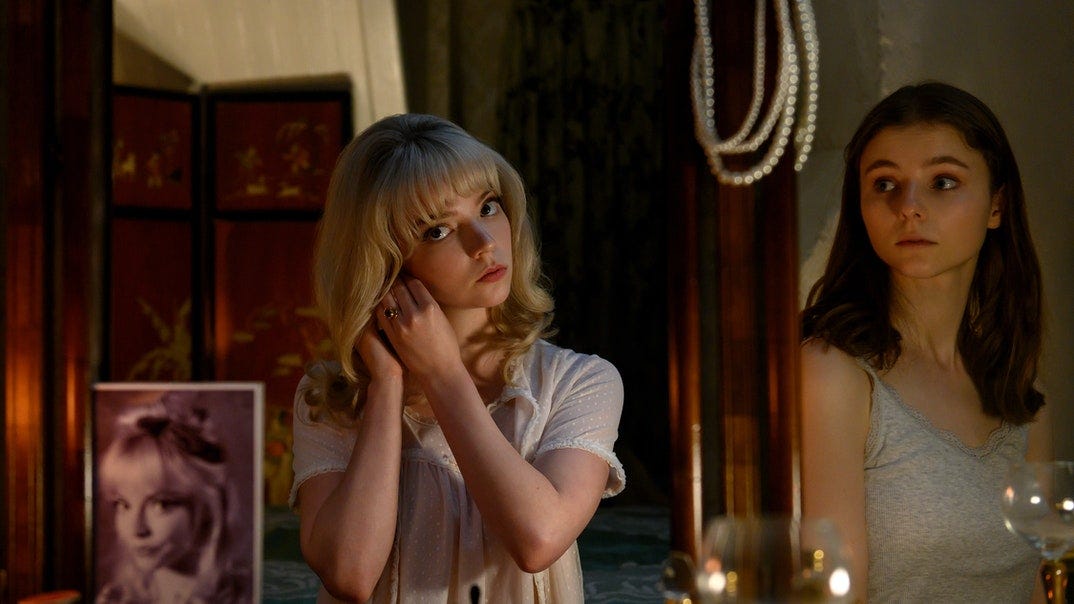
But the first half’s a visual and sonic delight, especially if you have any love for Sandie’s era. The soundtrack (available on Spotify and highly recommended) overflows with the likes of Petula Clark, Cilla Black, Peter and Gordon, and vintage Kinks – I was hooked as soon as “Starstruck” came soaring through Eloise’s headphones – and the recreation of a London nightclub circa 1966 is a rapture. Plus there are a few hardy souls in the cast who can claim to have been there: Rita Tushingham (“A Taste of Honey”) as Eloise’s Gran, Terence Stamp (the Terry of “Waterloo Sunset,” or so it’s said) as a creepy old character, and the late, great Diana Rigg (“The Avengers”) in her final role, and a meaty one it is too. In a perfect world, Edgar Wright could get into a time machine, go back to Swinging London, and make a movie with them. But we’re not living in a perfect world, are we?
Gospel music is the sound of yearning for a perfect world to come – it’s the joy that’s been deferred brought singing into the here and now. If you’d like a transcendent streaming surprise this weekend, allow me to recommend “How They Got Over,” a documentary opening in various independent art-house cinemas but also available for a $10 streaming rental from many of them. (This page at First Run Features lists the theaters and which ones are offering virtual screenings; a portion of the ticket price goes to whichever theater you choose.)
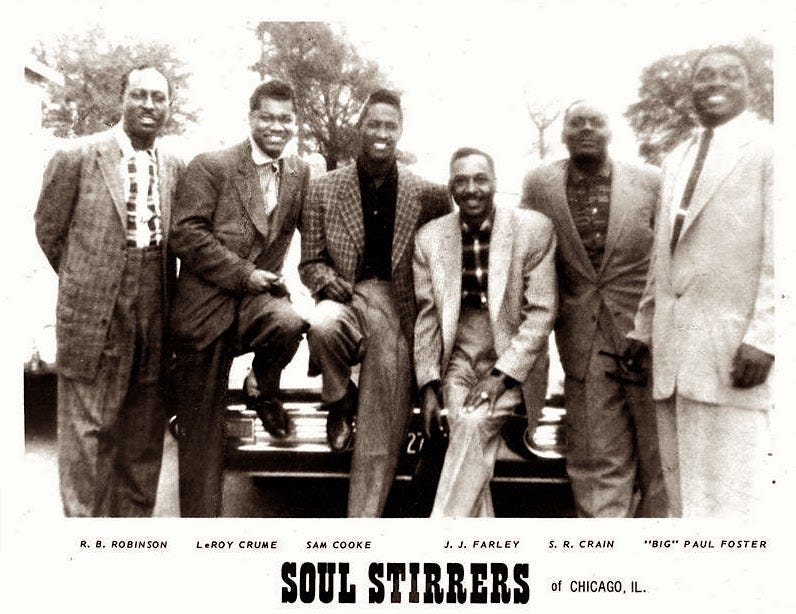
Subtitled “Gospel Quartets and the Road to Rock & Roll,” the film offers great history and greater music. Surviving members of The Dixie Hummingbirds (they sang on Paul Simon’s “Love Me Like a Rock,” remember?), the Blind Boys of Alabama, and others tell of the long journey from street corners and church pews through recording studios, radio stations, and television broadcasts; contending with racist cops and club owners; adding instruments and plugging them in; morphing through Hard Gospel and Smooth Gospel and gradually seeding the pop charts with crossover figures like Sam Cooke and Lou Rawls.
Attention is paid, as it should be, to the women: The Davis sisters, Dorothy Love Coates, Sister Rosetta Tharpe with her voice and electric guitar set on stun. The talking heads in “How They Got Over” are fine and illuminating, but when director Robert Clem goes to the archives and just lets the performances roll, the heart just about explodes. If the gospel segments of the recently unearthed “Summer of Soul” knocked you out, here is this music’s roots, trunk, and branches.
If you enjoyed this edition of Ty Burr’s Watch List, please feel free to share it with friends.
If you’re not a paying subscriber and would like to sign up for additional reviews and to join the discussions, here’s how:
If you’re already a paying subscriber, I thank you for your generous support.


